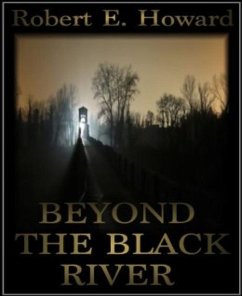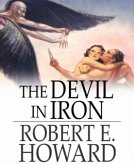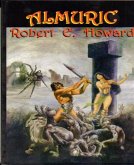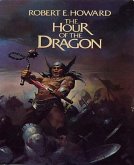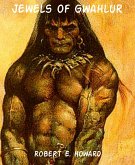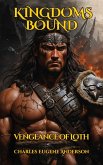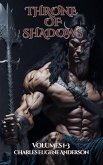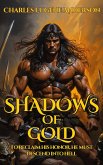"Beyond the Black River" is one of the original short stories about Conan the Cimmerian, written by American author Robert E. Howard. A young settler named Balthus encounters Conan in the forests slaying a forest devil. Accompanying the young man back to the Fort, Conan finds the body of a merchant ensorcelled by a Pictish wizard named Zogar Sag and slain by a swamp demon. The Fort Tuscelan Commander, Valannus, is a desperate man and asks Conan to slay Zogar Sag before he raises the Picts against the whole borderlands. Taking a hand picked team of scouts and Balthus, Conan sets off stealthily in canoes. Balthus is captured and most of Conan's men slaughtered in an ambush. Balthus and one of the Scouts are tied to stakes and the scout is sacrificed by Zogar Sag to one of his jungle creatures. Before Balthus can meet a similar fate, Conan sets the Pictish village on fire and the two flee into the woods. Conan tells Balthus of the cult of Jhebbal Sag, now forgotten by most. Once all living things worshipped him when men and beasts spoke the same language. Over time men and most beasts forgot his worship. Zogar Sag has not, however, and can control those few animals and creatures who also remember. And they are on Conan's trail now. Conan is able to neutralize them using a symbol he once noticed, and the pair hurry to return to the Fort to warn them of the impending Pictish assault, but they are too late. They then go to warn the settlers that the Picts have crossed the river and are raiding. They are joined by Slasher, a feral dog formerly owned by a settler who had been slain by the Picts. Balthus is sent on to warn settlers of the coming Pict raid, and Conan parts from him to warn a group of settler who had gone to gather salt. Balthus warns the settlers, and-accompanied by Slasher-makes a stand against the coming Pict raiders. Their sacrifice delays the Picts and give the settlers time to reach safety. Conan manages to warn the salt-gathering party in time, but finds he has been marked for death by the gods of darkness for misusing the symbol of Jhebbal Sag. In the end Conan triumphs, but the fort is lost. The story ends in a tavern. A survivor tells Conan about the courageous act of Balthus and Slasher, and how their final stand had delayed the Picts just barely long enough for the settlers to reach safety. Upon hearing of the fight, Conan vowed to take the heads of ten Picts to pay for Balthus' sacrifice, along with seven heads for the dog, who was "a better warrior than many a man."
Dieser Download kann aus rechtlichen Gründen nur mit Rechnungsadresse in A, B, CY, D, DK, EW, E, FIN, F, GR, IRL, I, L, M, NL, P, S, SLO, SK ausgeliefert werden.

